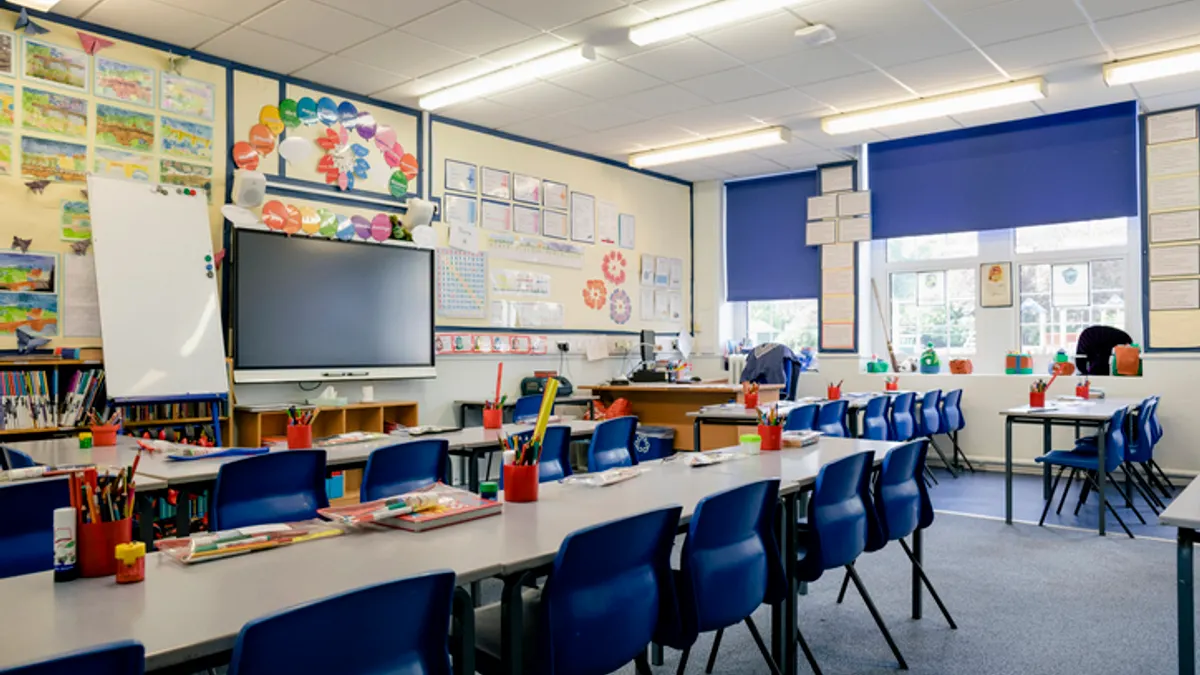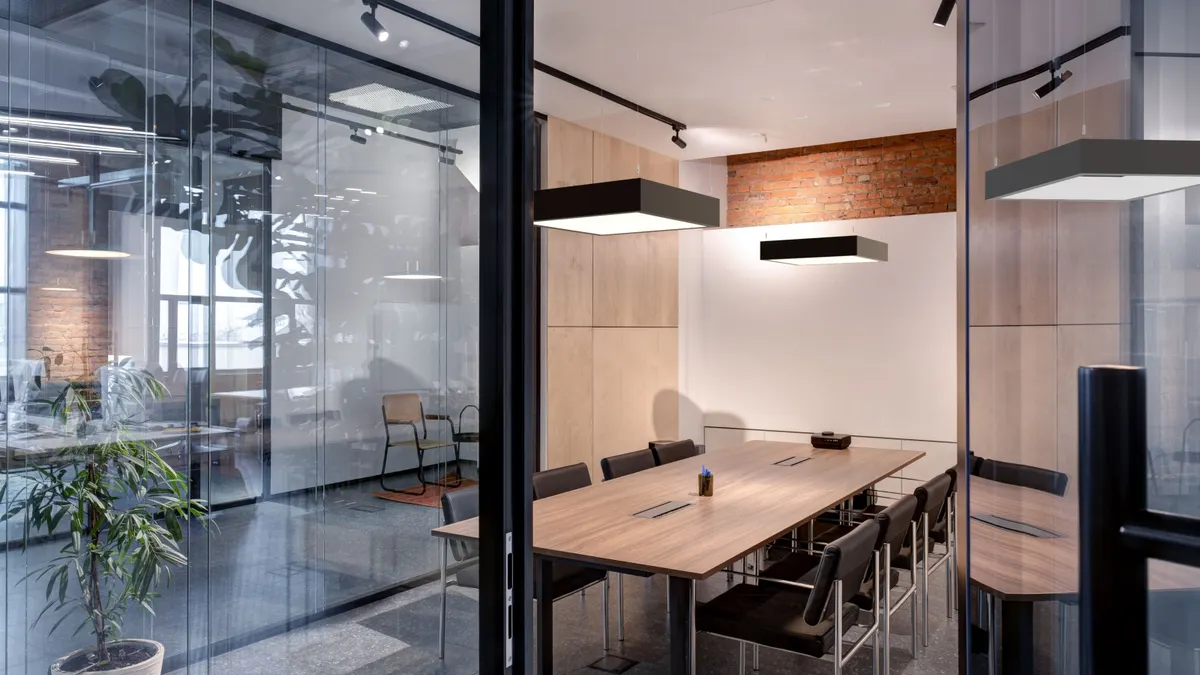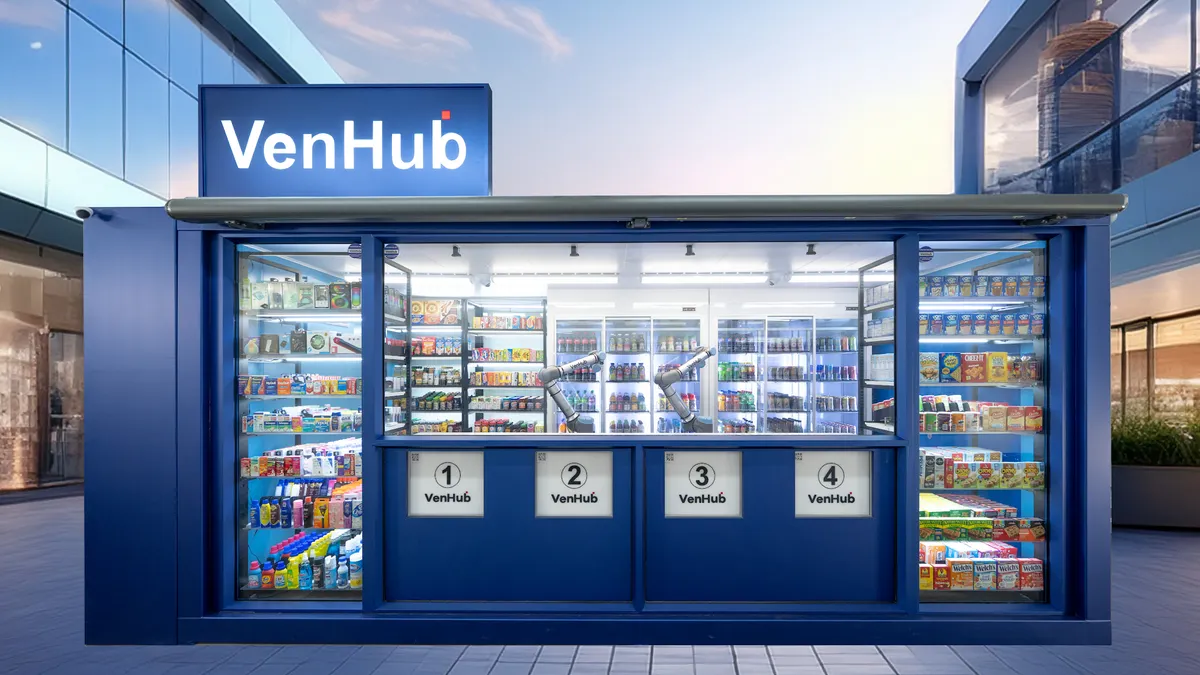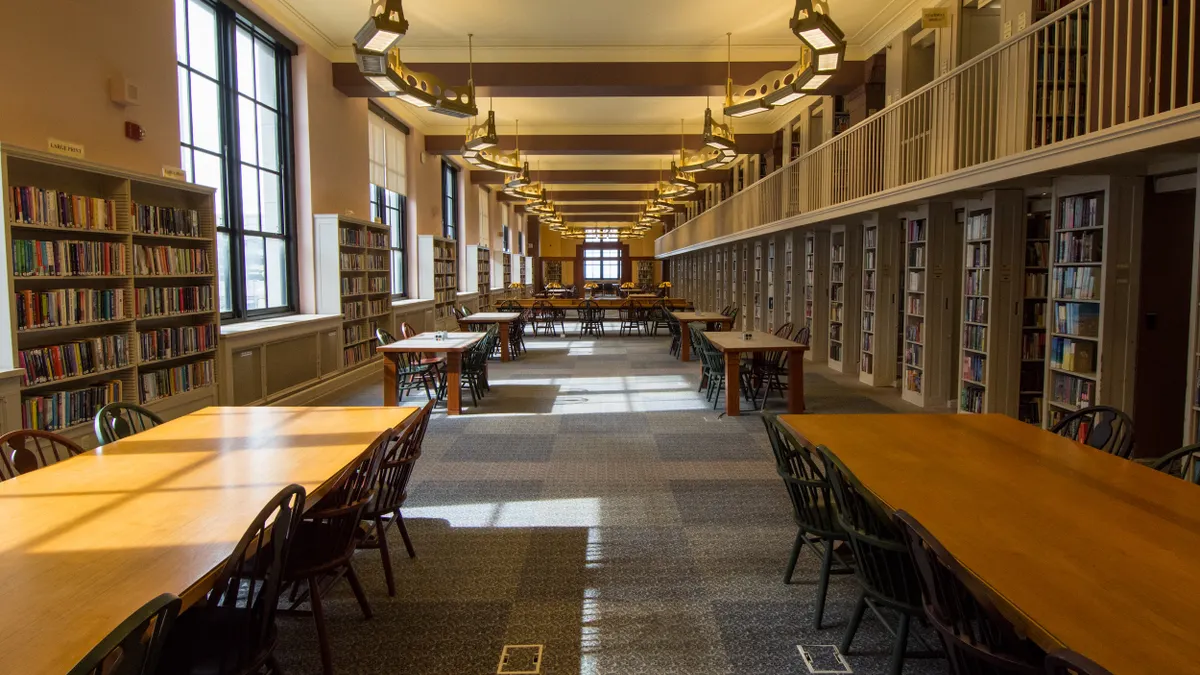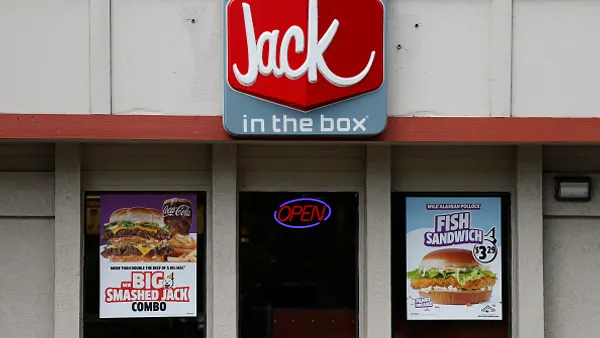The head of facilities is a “one-of-one” job, says Danny Clemens, who’s retiring from his role overseeing almost 30 buildings for the 13,000-student Bullitt County Public School District in Kentucky. It’s “24 hours a day, 7 days a week.”
That means returning phone calls and responding to texts even when he’s off duty. “That’s how I choose to serve our folks,” says Clemens, who will be handing over his duties to a successor in early October.
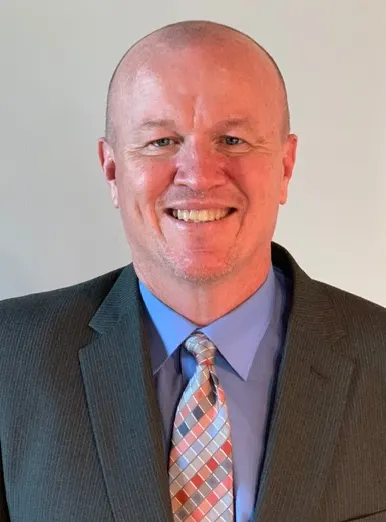
Clemens has been in education for almost 30 years, first as a teacher then as a guidance counselor then as an assistant principal and principal and now as a facilities director. Throughout his career, he’s relied on one set of skills, and it’s not about fixing broken equipment. It’s about managing relationships.
To learn about his career path and how he tackled the challenges that come with the job, Facilities Dive sat down with Clemens for a short conversation.
The following Q&A has been edited for clarity and length.
FACILITIES DIVE: How did you become involved in facilities management?
DANNY CLEMENS: I came down the school administration lane. I was a teacher, guidance counselor, assistant principal and a principal. I always had an interest in the facilities part of it. I played a role in the buildings that went through renovations, additions and new construction. On the personal side, I built my own house. Coming to the end of my educational career – 27 years in public schools in Kentucky – I was looking for something a little bit different, challenge myself, get out of my comfort zone and grab something and run with it.
What is the most important skill facilities management requires?
Communication and collaboration – exactly the same as when I was a principal. I created a virtual school during COVID-19. I never pretended to be an expert in third grade reading. I had an expert for that. I just made sure I was supporting them. There’s really no difference in this role. [From an administrator’s perspective], the school differentiates out by academic subjects. I differentiate out by construction, maintenance, custodial, energy use. There are more similarities than differences. As far as knowing something new, there are a lot of things. I learned about our HVAC control systems, facilities use requests, getting into scheduling systems and dealing with vendors. You deal with vendors somewhat as a principal, but, man, there are so many vendors now, every which way, reaching out. That would be a new one for me.
Did building your house help when you started overseeing facilities?
It really did. I went to a public library and checked out books: how to design a house, what to do first, how to get permits, things like that. I didn’t do everything myself; I subbed out different parts, so it was all about communicating, collaborating, knowing people personally, learning processes. Same thing here. I think I’ve been a part of around $205 million in building projects, new construction and renovation.
How are your operations organized?
I have a maintenance supervisor, a custodial supervisor, an energy auditor, a secretary and 15 agents – techs – who have different roles: HVAC, electrical, plumbing, preventive maintenance, kitchen. With 15 technicians, and only two for preventive maintenance, we have to be efficient. We have 29 district buildings, 23 of them schools. We have 13,000 kids and more than 1,000 staff. That’s typical in Kentucky for a team to serve a district this size. So we have to be efficient with our time and resources. We always attempt to fix things here first. If we need to ask for additional help, our techs make a note in the work order, which communicates back to me or the maintenance supervisor.
You started using a new workflow management system after you came on board. What’s been the result of that?
It allowed us to expedite work and track how we respond to work orders to make sure everything's functioning as it should be. The classroom is the center of our universe, so we want to disrupt it the least amount possible. I believe in a lot of frontloading for preventative maintenance projects, so being able to have a system that immediately puts out scheduled work orders keeps us going without the disruption of things breaking down. Some of those can be as easy as changing HVAC filters by the preventive maintenance technician. It can be cleaning coils on a roof HVAC unit – just making sure everything’s operating as it should.
What advice do you have for someone who wants to grow in facilities management?
Make yourself available and communicate. I always answer messages the same day – texts, emails, phone calls. This position is 24 hours a day, 7 days a week. When I’m on vacation, I answer my phone and return text messages. I won’t say there’s no escaping it, but that’s how I choose to serve our folks, our district and our people. There’s no substitute for me. I’m one of one. That’s not being full of myself. That’s just a true statement.



